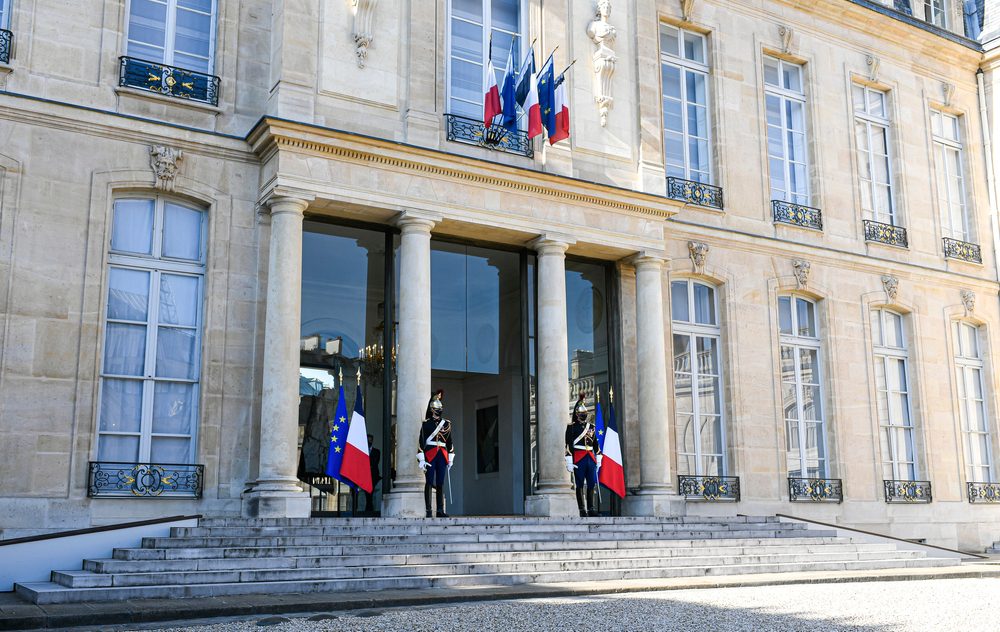
After several days of uncertainty, during which President Emmanuel Macron had said he “wanted to take his time,” the composition of the new government led by new Prime Minister Elisabeth Borne was disclosed on Friday afternoon, May 20th, by the Secretary General of the Elysée Alexis Kohler.
The long and relatively unusual wait for the appointment of a government under the Fifth Republic can be explained by the difficulty in finding candidates for ministerial positions while the next legislative elections loom. Those elections will certainly change the situation and lead to a reshuffling in order to adapt the government to the results of the polls.
The new government of Elisabeth Borne includes in its ranks many veteran ministers from the previous ministry headed by Jean Castex. Thus, we still find Minister of the Interior Gérald Darmanin and Minister of Justice Éric Dupont-Moretti, even though he is under judicial investigation for illegal conflicts of interest. Minister of Economy Bruno Le Maire—who boasted a few weeks ago of wanting to declare economic war on Russia before being disavowed by the president—is also reappointed to his post. The controversial Minister of Health Olivier Véran changes his position and finds himself managing relations with Parliament. He is replaced by a former Socialist MP, Brigitte Bourguignon.
The new government is clearly left-wing. Many ministers are former Socialist Party members who have joined Emmanuel Macron’s movement. There are also former members of the Les Républicains party, such as the new Minister of Foreign Affairs Catherine Colonna, who worked alongside Dominique de Villepin when he headed the Quai d’Orsay. Damien Abad, former president of the Les Républicains deputies in the National Assembly just left the right-wing government party and has been ‘rewarded’ for his change of label by receiving the portfolio of the ministry of solidarity.
But the appointment that is likely to be the most talked about is the arrival of Pap Ndiaye at the head of the ministry of national education, replacing Jean-Michel Blanquer. Pap Ndiaye has a Senegalese father and a French mother. A former student of the École Normale Supérieure de Saint-Cloud and holder of an agrégation d’histoire, he specialised in the history of minorities and contributed to the importation of American-inspired black studies into France. He has held various positions in the cultural sector, always related to the issues of ‘diversity’ and ‘visibility’ of minorities.
Pap Ndiaye was, for example, one of the authors of the report condemning the lack of ethnic diversity at the Paris Opera. He sits on the scientific council of CRAN—the Conseil Représentatif des Associations Noires de France—a virulent association specialising in racial discrimination litigation which has been denounced for its excesses by journalist Éric Zemmour. According to revelations in the newspaper Fdesouche, in 2016 Ndiaye participated in a “non-mixed” meeting—i.e., forbidden to white people—with the ‘indigenist’ leaders Maboula Soumahoro and François Vergès. In 2018, however, he spoke out against the deletion of the word ‘race’ from Article 1 of the French Constitution, arguing that this would weaken the anti-racist struggle. In February 2021, Ndiaye was appointed director of the Palais de la Porte Dorée, which houses the Immigration Museum in Paris.

The ministry of national education is thus ostensibly entrusted by Emmanuel Macron and Elisabeth Borne to a figure who is very well known among indigenous activists. At a time when the French education system is facing serious recruitment problems, and when the problems of insecurity and the near-impossibility of teaching in classes in areas where children from immigrant backgrounds are exploding, the signal sent to teachers is clearly negative.
Scepticism and lack of enthusiasm have generally greeted the discovery of the new team. The president of the Rassemblement National Marine Le Pen sees in the appointment of Pap Ndiaye “the last stone in the deconstruction of our country.” Éric Zemmour believes that “Jean-Luc Mélenchon doesn’t need to be appointed Prime Minister, since he already has his government.”
La nomination de Pap Ndiaye, indigéniste assumé, à l’Education nationale est la dernière pierre de la déconstruction de notre pays, de ses valeurs et de son avenir. Elisez un maximum de députés du @RNational_off pour protéger notre jeunesse des pires idéologies !#remaniement
— Marine Le Pen (@MLP_officiel) May 20, 2022
On the Left, people see many of these appointments as a mediocre choices, without vision or ambition, sadly continuing the mundane spirit of the previous quinquennium: “we take the same and we start again,” deplores the Communist Fabien Roussel, and Jean-Luc Mélenchon criticises it as a “dull and grey” government. He denounced the government for its “lack of audacity and renewal” and called for a real change in the legislative elections in June.
On prend les mêmes et on recommence !
— Fabien Roussel (@Fabien_Roussel) May 20, 2022
4 semaines pour un jeu de chaises musicales.
Le vrai changement, c'est votre vote des 12 et 19 juin qui l'apportera. #NUPES#gouvernement
The composition of the government will certainly be revamped in a little less than a month. It remains to be seen in which direction and for which political project.
